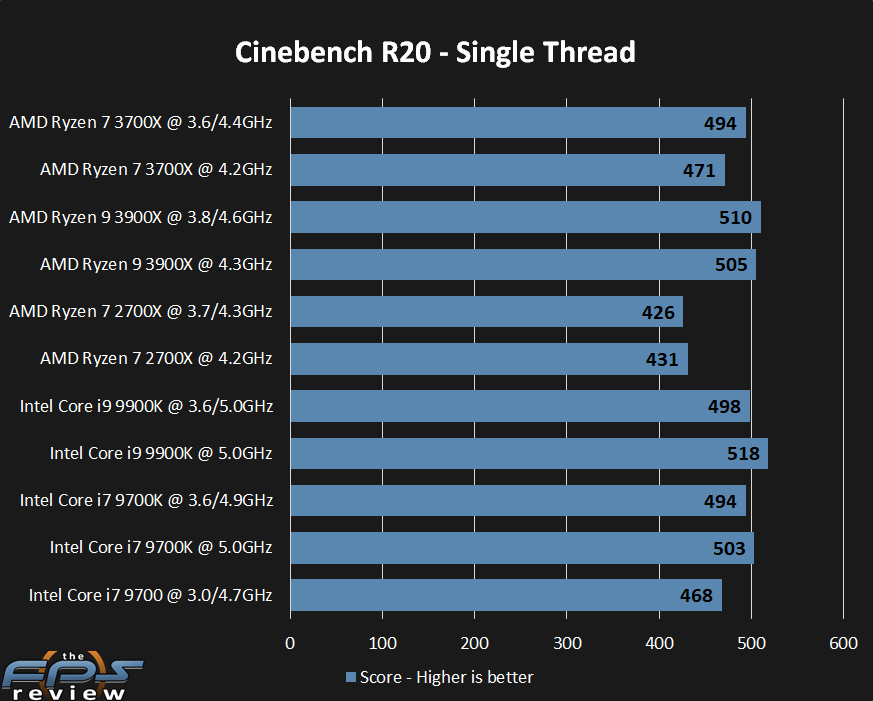Where AMD Really Went Wrong
Simply put, AMD could have avoided this nonsense without changing these CPU’s at all and marketing them differently. AMD should have said that these only clocked to 4.3GHz or less for single-threaded applications and around 4.0GHz to 4.1GHz “all-core.” When people saw 4.50GHz or 4.575GHz using PB2 or PBO, there would be endless praise for these CPU’s and literally nothing negative would have been said. It wouldn’t change the benchmark numbers and anything people got over 4.3GHz would be considered icing on the cake rather than a requirement for unrealistic single-threaded conditions you won’t see very often anyway. After all, these CPU’s (even the worst of them) can still outperform Intel outside of gaming either in absolute performance or on a price/performance basis. Our testing showed the Ryzen 7 3700X could match or beat the Corer i7 9700K in almost any test. It lost here and there in gaming benchmarks but costs less, which is enough of a consolation prize to make that fact a non-issue.
AMD could have capped the CPU’s clocks for the whole family at speeds all of them in a given model/family could do. However, AMD didn’t want to do that as Ryzen 3000’s single-threaded performance might have suffered in some of the benchmarks. I think AMD was so desperate to stick it to Intel that it got ahead of itself and overestimated its clock speed figures. This also had the effect of generating additional hype for a CPU that ultimately didn’t need the extra effort from AMD’s propaganda machine.
However, AMD realized that they were damned if it did and damned if it didn’t. By that I mean, had AMD not imposed a boost clock limit on its Ryzen 3000 series processors, but claimed a lower boost clock of say 4.2GHz-4.3GHz, it would have been accused of underrating its processors and therefore cheating to win benchmarks.
Real Data
If you look at the actual data, limiting the clocks below their current actual boost clock matters in some cases and not others.
Take this single-threaded benchmark for example. Here we can see a small difference with the 3900X resulting in a five-point difference favoring the intermittent boost clocks slightly under the advertised value and locking the CPU at 4.3GHz for all cores. In that sense, limiting the CPU wouldn’t have hurt it compared to letting it boost higher than 4.3GHz here and there. However, if you look at the then similarly priced Intel Core i9 9900K it achieves a result of 518 at 5.0GHz and 494 at stock speeds. In that context, AMD’s hat result of 505 for the 4.3GHz fixed speed and 4.5GHz+ boost result of 510 tell a different story. One says that we aren’t as fast as Intel and the other can be interpreted as being “close enough.”
When you look at the 3700X, you can see that slight difference actually has some discernible impact to the benchmark numbers. The two CPU’s I tested couldn’t do 4.3GHz all core, so locking it to 4.2GHz would have been the likely choice for AMD given where it sits in the product stack. If they had done that, it would have negatively impacted the single-threaded results to the 4.2GHz “OC” value. Thus, I think it’s safe to say that AMD’s pushing the boost clocks as far as they did was about winning benchmarks more than anything. Those benchmarks that people read about your product are what people use to judge the CPU. Winning those benchmarks is akin to winning a race. It doesn’t have to be a win by a wide margin. All people remember is that you won.
All of these factors considered I understand why AMD did what it did. That said, I still feel that the best course of action would have been to advertise the CPU’s at a lower clock speed and let them boost higher when they could. This would have resulted in the best overall outcome and best perception. Reviewers might have wanted to go back and lock the speeds to a fixed value in order to keep things fair, which would have had a negligible impact on the final results in most cases. Enthusiasts would have celebrated getting extra clock speed for free rather than being upset that their CPU’s aren’t doing what they expected them to do.

